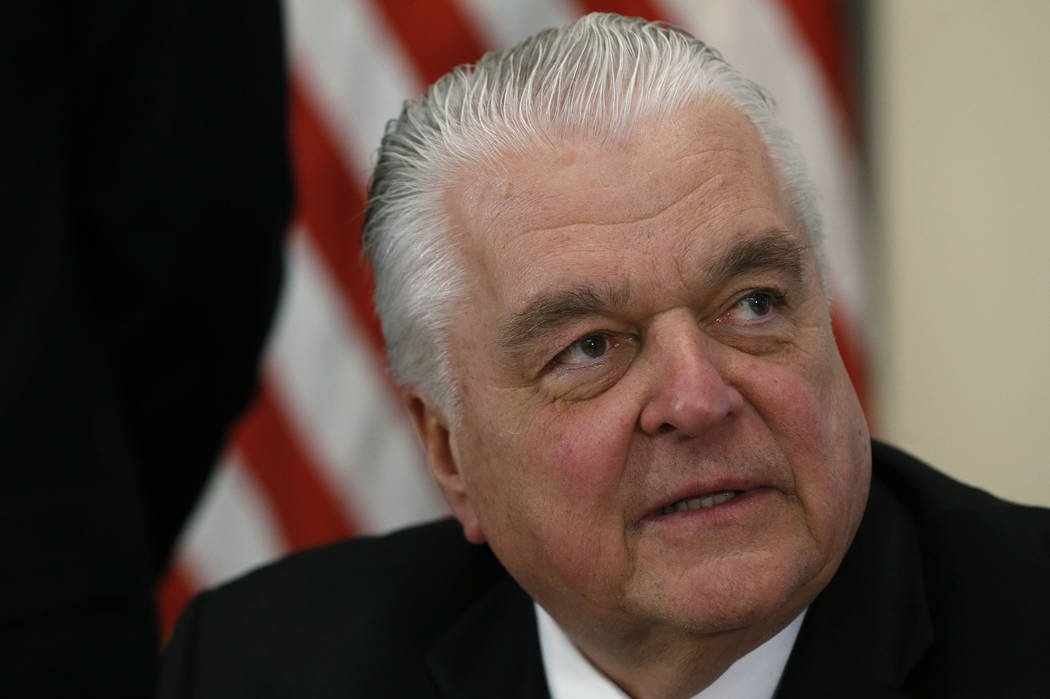EDITORIAL: Nevada ripe for occupational licensing reform
Gov. Steve Sisolak’s recent run-in with the Nevada Board of Dental Examiners highlighted his frustration with the state’s occupational licensing regime. His predecessor felt the same. “I do feel like some of the boards and commissions feel like they’re autonomous, and they don’t answer to anyone,” then-Gov. Brian Sandoval said in 2018.
They’re correct. Too many of these panels serve primarily to protect entrenched interests at the expense of consumers while stifling entrepreneurship and economic opportunity. Yes, medical professionals and airline pilots need professional certification, but why should landscapers, interior decorators or hair-braiders require permission from the government to earn an honest living?
The problem is not confined to Nevada.
“Economic liberty … is at the heart of the American Dream,” notes the Institute for Justice, a public-interest law firm that frequently litigates licensing issues. “Unfortunately, all too many entrepreneurs find that this dream is under constant attack by unreasonable licensing, permitting and other requirements that stand in the way of honest competition.”
As 2019 draws to a close, it’s worth remembering some examples of occupational licensing myopia that remained ongoing this year.
■ The Louisiana cosmetology board has prevented scores of hair-braiders from practicing their craft by mandating they first complete 500 hours of schooling and pay annual licensing fees. The state has only one certified cosmetology school, IJ reports, meaning potential hair-braiders may have to travel up to four hours each way to attend the required classes. Nearby states have no such restrictions on the vocation and have yet to experience any consumer safety problems because of rogue braiders.
■ In January, an Oregon man won his fight with the state’s engineering board, which went after him for expounding on his theories about traffic light timing. The panel spent two years investigating Mats Jarlstrom, eventually fining him $500 and banning him from speaking “about the math behind traffic lights,” IJ reported, because he wasn’t licensed to practice engineering in the state. Never mind that Mr. Jarlstrom actually had a degree in electrical engineering.
■ The state of Kentucky this year prevented a Nepali immigrant from opening a home health care business catering to refugees who don’t speak English. The state requires that the new company acquire a “certification of need” proving there is a market for the service and that it won’t harm any existing providers. Such laws often even allow entrenched interests in the field to object to potential competition. Imagine if a McDonald’s franchisee could nix a new Burger King by complaining it might cut into his profits. The free marketplace and nothing else should be the sole arbiter of whether there is a “need” for a new enterprise.
■ The Texas Board of Veterinary Medical Examiners fined and suspended the license of an animal doctor who occasionally consulted online with pet or animal owners living in remote areas. This violated a regulation — intended to protect brick-and-mortar practitioners — demanding that those offering such care must first physically examine the animal.
■ A Mississippi startup that used public data to make maps of properties for small banks ran afoul of the state’s engineering board, which accused the new company of “unlicensed surveying.” In reality, its business model represented a threat to existing interests. The issue is now before a federal appeals court.
Back to Nevada, where Gov. Sisolak recently replaced virtually the entire dental board after it became apparent the panel’s loyalties were with the state’s dentists rather than patients. Another festering problem is the state pharmacy board, which has for years failed to conduct the required screenings of drug wholesalers, the governor revealed in October.
“The pharmacy board is not the only state licensing board in Nevada that deserves an in-depth review,” he said. The governor has vowed increased scrutiny of licensing commissions during the 2021 legislative session. A primary goal should be to increase accountability and to eliminate unnecessary, protectionist hurdles to employment and economic opportunity that often discourage those who most need work. On that, there should be bipartisan support.

















